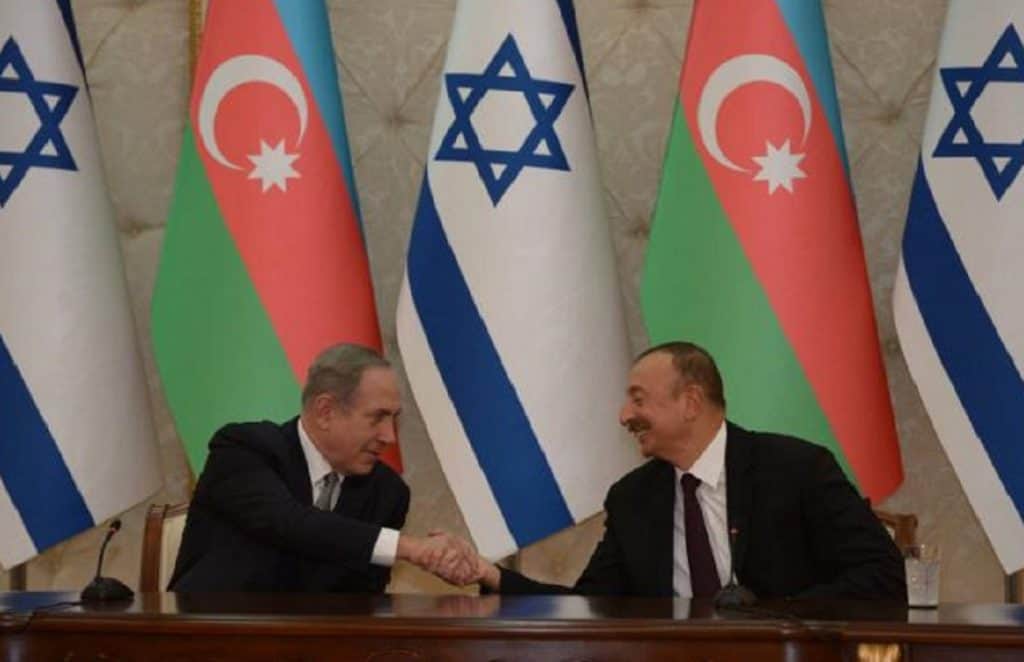By David Davidian
On August 27, 2020, the Turkish Defense Minister, Hulusi Akar declared: “Turkey is also a party to the [Nagorno-Karabakh] conflict, standing with a brotherly state and defending its rights.”

While Turkey has periodically made similar statements supporting Azerbaijan in its Stalin-age claim over the Armenian-inhabited region of Nagorno-Karabakh, this latest direct statement is significant for several reasons. Akar’s declaration came with heightened regional tensions created after a July 12 incident when a lowly Azerbaijani military jeep approached an Armenian border military post, and a border conflict ensued.
Akar’s statement comes on the heels of a significant military display of Turkish support for Azerbaijan by sponsoring war games along Armenia’s borders with Azerbaijan. Given the plummeting value of the Turkish lira and stagnant economy, Turkey is searching for a way out. Turkey has engaged in bellicose rhetoric against Greece, Egypt, Cyprus, and Israel as it aggressively endeavors to tap Eastern Mediterranean gas deposits.
Turkey has plans to extract gas from the shores of Libya. Currently, Turkey and its puppet state of Northern Cyprus are engaged in naval war games. From Libya to the Caspian, Baku has reiterated its unwavering support for Turkish expansionist and aggressive actions. It is unclear when, or in what form tensions may escalate in the Southern Caucasus or the Mediterranean. Turkey’s statement only exacerbates tensions.
Azerbaijan supplies over forty percent of Israel’s crude supply (not that Israel can’t purchase crude from other sources during this pandemic-generated oil glut). Western investment in hydrocarbon production and transport across Azerbaijan in total is probably well north of $100B with $75B alone from BP. An expanded conflict would destroy these transport pipelines. Suppose Turkey engages in a Go-like game of securing control of these pipelines? What was known as the “Contract of the Century” would be under Turkish control to throttle and blackmail as it does Syrian refugees into Europe.
Azerbaijan serves specific western interests as a compliant country bordering Iran. While partially anecdotal and otherwise understood, Azerbaijan has served as a base for operations and intelligence gathering in Iran. If tensions rise in the Southern Caucasus due to Turkish adventurism, Iran cannot stay idle. Millions of Iranized ethnic Azerbaijanis live in Iran’s northwestern border provinces.
Elements in Iran have threatened Azerbaijan if it moves beyond the rhetoric of uniting “Northern” and “Southern” Azerbaijan. Such a union would be in the interest of Turkey’s expansionist designs, while a bloodbath for others.
On August 29, “Hikmet Hajiyev, a senior adviser to Azerbaijan’s President Ilham Aliyev, said Russia has been “intensively arming Armenia” right after the July conflict, with Russian Il-76 strategic airlifters flying towards Armenia after July 17.”
This claim has gone viral on the internet. Even if true, without context Hajiyev’s claim is tantamount to disinformation since Azerbaijan has received, at a minimum, Turkish Bayraktar killer drones since July 17. The amount of Turkish arms left for Azerbaijan in the wake of their war games has not yet been disclosed. Hajiyev’s declaration has implications beyond classic post-Soviet lack of judgment.
The west is sensitive to Russian influence outside its borders. If Hajiyev intended to blow the whistle louder, unforeseen implications might follow. Hajiyev’s claim may be the result of Azerbaijani President Aliyev having fired his experienced Foreign Minister Elmar Mammadyarov as July hostilities widened, accusing him of pandering to Armenians. His replacement has little or no foreign policy experience.
It is uncertain why Azerbaijan has reacted the way it has in the wake of the latest border flareup. However, the term Azerbaijani military incompetence seems fitting since Azerbaijan lost a Major General, a Colonel, two Majors, scores of soldiers, a $30M Israeli-built Hermes 900 UAV, a foreign minister, and the EU censured Azerbaijan after Aliyev jailed scores of his opposition.
Turkey reacted psychologically and militarily to reinforce Aliyev. The stakes appear to be rising as Armenia is increasingly touting its strategic relations with Russia. Israel has sold Azerbaijan well over $5B in high tech military hardware over the past decade. This relationship may have contributed to the current increase in tension, leaving the false impression that any high tech military will always be superior. Sun Tzu would disagree.
Israel will, in all likelihood, emerge unscathed in an escalated conflict between Armenia and Azerbaijan. However, encouragement given Azerbaijan allowed Aliyev to proclaim, Azerbaijan-Israeli relations are “like an iceberg, nine-tenths … below the surface”. This relationship mirrors Israel’s ties with Turkey before the “Mavi Marmara” incident.
The return on Israel’s twenty-five diplomatic investment with Ankara was reduced to Turkey being a useful minion in Syria, Lebanon, and by inference, Iran. Two weeks ago, in the Jerusalem Post, Seth Frantzman, noted, “Turkey has also become a “challenge” for the first time. This appears to be the growing consensus in military and intelligence circles.” The same may happen with Azerbaijan in conjunction with Turkey.
The former mayor of Baku, who served between 2001 and 2018, Hajibala Abutalybov, in a 2005 meeting with a municipal delegation from Bavaria, Germany, stated, “Our goal is the complete elimination of Armenians. You, Nazis, already eliminated the Jews in the 1930s and 40s, right? You should be able to understand us.”
Israel is not in good company.
Author: David Davidian (Lecturer at the American University of Armenia. He has spent over a decade in technical intelligence analysis at major high technology firms.Yerevan, Armenia).
(The views expressed in this article belong to the author and do not necessarily reflect the views of World Geostrategic Insights).
Image Credit: Haim Tzach, GPO







